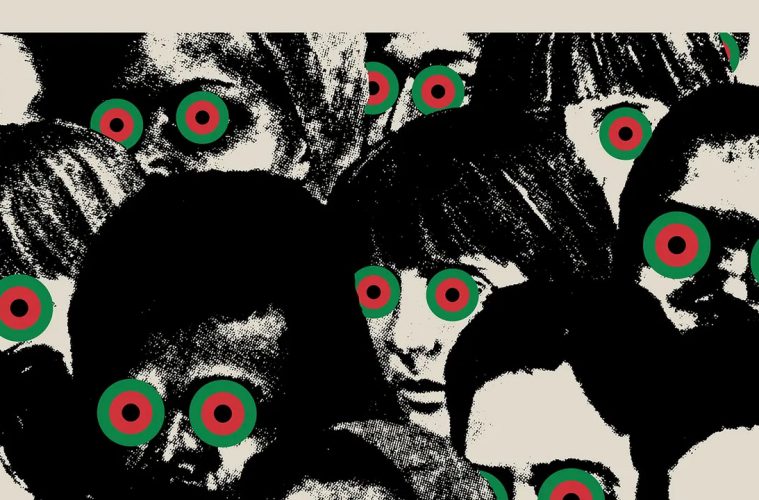A decade ago, I paid a ticket for a movie which I knew nothing about beforehand, even as a self-confessed film buff. I did so out of a loose combination of boredom and a whim. In viewing the film, it became readily apparent that it was familiar territory in terms of the actors, the director, and the subject matter. I left the theater without any disappointment, but rather a fiendish need to own the movie once it eventually became available on physical media. Yes, I liked it that much. That film was Oliver Stone’s “Savages” and the point of that anecdote is this: I recently stumbled onto an album called “Cheat Codes” and experienced the same sensations, not knowing about the album’s promotion despite being a fan of the men behind it. The sole differences being that said experience was entirely audio, however its physical medium was more speedily available for purchase courtesy of living in the age of Amazon Prime. For this album, versatile producer Danger Mouse has laced some intricate walls of sound for emcee Black Though to paint his dense bars on top of.
Up until now, Danger Mouse has been producing for indie rock acts and hasn’t worked on a full-length hip-hop album in 17 years. His sample palette remains quite varied, drawing from the wells of vintage R&B, psychedelic rock, and art-rock for Black Thought’s relentless lyricism. Thought’s kept fans busy with his “Streams of Thoughts” EP series, but here we have him rapping over a full-length production that’s known for being consistent in its unconventional routes. To start things off, Thought spits a sixteen-bar verse over ‘70s soul on “Sometimes”, then we immediately get to the title track. Going for double bars, Thought raps over a chopped funk sample about the plight of the Black man in America, ultimately summed up at the end, “Or became fathers and sons facing the same thing / In the hood, mouth full of blood, tasting the same sting / Playing a game, trying hard to hang by the same string / You better get the cheat code or get RICO-ed, nigga/ Bad credit get your shit re-poed, listen.” The heavy shifting of the drum snares on the soul piano-looped “The Darkest Part” is interesting, as is Kid Sister on the hook and Raekwon lending his flossy, yet grimy raps for a guest verse.
The ‘70s style Blaxploitation is written all over “No Gold Teeth”, and the organ sample layered on top of it is tailored by DM for both Black Thought’s imagery-shifting wordplay and deep flow. Another thing worth noting is that this is the third track without a hook, which is an inclination of Black Thought’s at times: To rap with the hunger of a Conehead. The single “Because” features Joey Bada$$, Russ, & Dylan Cartlidge. Russ has the better verse of the two guest rappers while the latter’s presence on the hook is psychedelic. Speaking of which, the acid-rock sampling “Belize” posthumously reunites Danger Mouse with MF DOOM. This is one of the best beats on the album and the posthumous verse from DOOM is certainly circa 2005. As such, it would’ve been a welcome addition to “The Mouse & The Mask”:
Next up is the single “Aquamarine” featuring Michael Kiwanuka. From the melody of the hook, it’s evident why this was released as a single. In certainly the shortest track, Thought gets metaphysical on “Identical Deaths” with his verse exemplifying the notion that time is a flat circle. The final of the singles, “Strangers”, is a posse cut featuring A$AP Rocky and Run the Jewels. DM’s production on this track is something of a homage to El-P’s future-funk style of beats (so naturally, RTJ feel most at home over it), while all four emcees spit battle-ready sixteen-bar verses:
Thought goes back to the mic solo and hookless again on “Close to Famous” before accommodating his final guest, Conway the Machine on “Saltwater”. As adaptable as Danger Mouse is with his beats, this is the second time I’ve felt that he’s doing an emulation of the style of production his guests are accustomed to rapping over (in this case, Daringer’s). Nonetheless, this is beat is all Danger Mouse and Conway goes toe-to-toe on the mic with his own multis and customary crime narratives. Lastly, is “Violas & Lupitas”, a melancholy rumination built from string samples. In video game parlance, a cheat code is a series of buttons, letters, and numbers used in some combination to gain at least one advantage over an opponent. In life, some don’t need them to advance to the next level. For others, the only way to gain those advantages is to steal or scam them, and that requires cheat codes. Then there are those who employ cheat codes just for the hell of it. Lyrically and musically, Black Thought and Danger Mouse used theirs here to get one up on their peers in their respective mediums.

